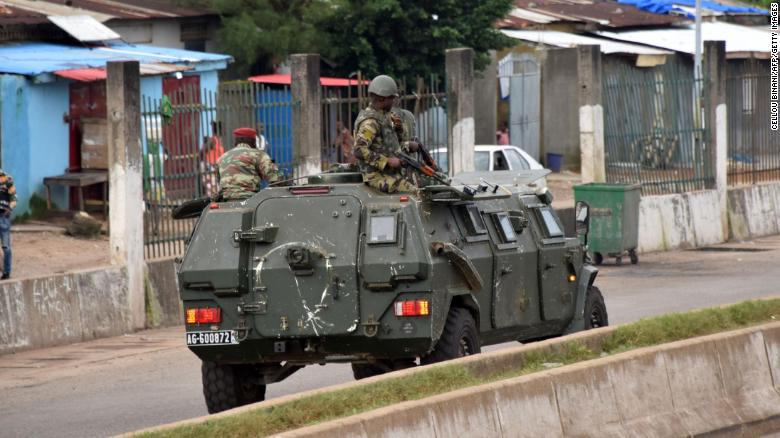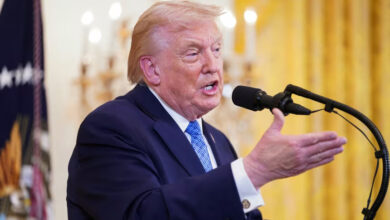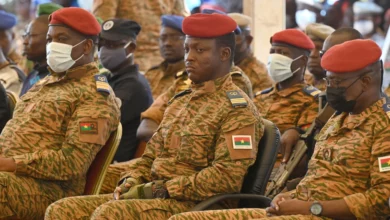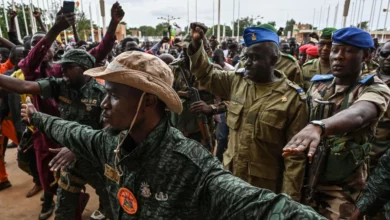
Conakry, Guinea (Reuters) – One person was killed in Guinea’s capital late on Wednesday during protests over fuel price hikes, in the most serious unrest since a military junta took power last year.
Gunfire rang out in Conakry overnight as people barricaded streets and set tyres alight in protest over a 20% increase in the price of gasoline, a Reuters reporter and witnesses said.
“Angry young people went out to protest and clash with security forces,” said Souleymane Bah, a resident of the city’s Koloma neighbourhood. “We heard several gunshots. There was also teargas.”
One protester was shot dead by security forces, according to the National Front for the Defence of the Constitution (FNDC), a coalition of politicians and activists that opposed former President Alpha Conde’s efforts to hold onto power.
A family member of the victim, who asked not to be named, confirmed he had been killed in the protest.
Security Minister Bachir Diallo promised an investigation. “I energetically condemn the actions that led to the loss of life,” he told reporters.
Wednesday’s protests were by far the largest since Colonel Mamady Doumbouya led a coup against Conde last September. Conde had changed the constitution to allow himself to stand for a third term in office in 2020, sparking widespread anger.
Many of Conde’s opponents, including FNDC leaders, cautiously welcomed the coup, but relations with Doumbouya’s junta have since soured.
Last month, the main opposition parties rejected a 36-month transition to democratic elections that was approved by the interim parliament. The protests on Wednesday took place in neighbourhoods known as bastions of opposition support.
In its statement, the FNDC said the security forces’ response “contrasts with Colonel Doumbouya’s rhetoric when he took power, which excoriated killings during protests”.
Following criticism of the 36-month timeline, the junta last month banned all public demonstrations, drawing a rebuke from the United Nations.




